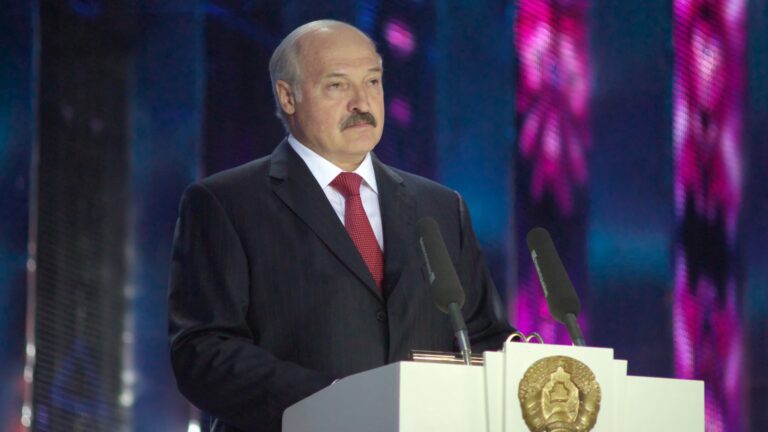
To renew, or not to renew, that is the question.
The Italian government, led by Giorgia Meloni, has time until the end of the year to take a decision regarding the Memorandum of Understanding (MoU) on the Belt and Road Initiative (BRI), signed in March 2019 under the first Conte government.
The agreement, which in addition to collaboration on infrastructural projects aims at strengthening the “political relations, economic ties and direct exchanges,” expires in March 2024 and will be automatically renewed for another five years unless either side informs the other that they are not renewing it, giving at least three months’ written warning.
Nonetheless, rumor has it that Meloni would like to find a way to extricate Italy from the BRI in the least damaging way possible: “It is a sensitive issue”, Meloni said. A decision could be taken soon, even before the G7 Hiroshima meeting in mid-May.
Meloni’s Policy of Reassurance
Through a firm stance on the war in Ukraine and conciliatory rhetoric towards EU institutions, Meloni’s foreign policy aims at showing Washington and Brussels that she can be a reliable partner in foreign policy and that Italy’s Atlanticism line is not under question.
The conservative and nationalistic government led by Meloni since the election last year has been up to now reluctant to more comprehensively address the issue of Italy’s ties with China. Nonetheless, Meloni’s party, Brothers of Italy (FdI), already adopted a harsh approach towards Beijing during the electoral campaign. In interviews with Taiwan’s Central News Agency (CNA) and Reuters before the September elections, Meloni labeled the MoU a “big mistake” and made clear she disapproved of Conte’s decision: “there is no political will on my part to favor Chinese expansion into Italy or Europe,” Meloni remarked. Furthermore, the prime minister has always been personally very critical of the Chinese Communist Party. As Italy’s sports minister in 2008, she called for the boycott of the Beijing Olympics.
This is not just about Meloni. China’s image in Italy suffered significant reputational damage in the last few years. The main factors are related to China’s alleged responsibility for the COVID-19 outbreak, the lack of reciprocity in economic relations and China’s assertive approach abroad. Beijing’s ambiguous position on the Russian invasion of Ukraine and the growing tensions with the United States over a potential conflict in East Asia also worry Italian public opinion and stakeholders. Moreover, concerns about Chinese investment in the country’s energy and communication system and in the strategically important Italian ports of Trieste and Taranto have raised suspicion regarding the activities of Chinese state-owned companies and their ties with the Chinese military.
Although Italy was not the first Western European country to sign a BRI MoU – it was preceded by Portugal and Greece (2018) – it represented a huge political victory for Beijing. Not only did it show the appeal that China’s megaproject could gain among G7 countries but at the time it was also seen as a potential blueprint for other Western European countries.
That is why the renewal of the document is of the main importance for Beijing. Indeed, Wang Lutong, head of the European affairs unit at the Chinese MFA, was recently in Italy and met with several officials, including Vice-Minister of Foreign Affairs, Edmondo Cirielli. Wang’s task in Rome was mainly to set the groundwork for the visits to Beijing of Meloni, Italy’s President Sergio Mattarella and Foreign Minister Antonio Tajani, but the BRI was on the agenda as well.
Domestic Politics Matters
Two things are certain in life: death and Italian political instability. Indeed, the key factors explaining why Italy signed a BRI MoU in 2019 have to do with the volatility of its domestic.
As Giovanni Andornino explained comprehensively, the decision was the product of specific political timing, political expediency and political figures. In its brief life – only fourteen months – the first Conte government became a critical voice within the European Union with a populist and Eurosceptic stance. The coalition was composed by the anti-establishment Movement Five Star and the right-wing Lega: a weak government with different views about the meaning of the memorandum. Both parties relied on a strong anti-European rhetoric and many personalities within the government were known for their skeptical views towards Italy’s transatlantic position.
While the coalition’s intention to break with this traditional positioning was one of the factors in the decision to sign the MoU, the move was still mostly seen by the government as a shortcut to achieve closer economic relations with Beijing rather than a political embrace of Xi Jinping’s infrastructural project. Strengthening economic ties with China was expected to partly alleviate the effects of Italy’s debt crisis. Italy’s strategic posture thus was never dramatically modified.
What is more, many things have changed since the first Conte government in 2019. During Mario Draghi’s tenure (2021-2022), Rome adopted a tougher approach towards Beijing, which Meloni is now building upon.
One of the key aspects of this approach has been the scrutiny of Chinese investments. Over the last decade, China has significantly enhanced its investments in Italian equity, especially in strategic Italian companies. Many of these acquisitions stopped just short of the statutory threshold (from 2 to 25 percent) activating a public notice of equity shareholding regarding the purchase of participations in listed companies. Due to growing concerns over Chinese investments in strategic assets, Draghi followed the EU’s tightening of FDI screening rules in 2020 and vetoed three takeovers of Italian companies by Chinese firms using the so-called “golden power”.
Did the MoU Bring Economic Benefits?
Looking back, the first Conte government’s hopes of a stable and deeper economic relationship with China never materialized and the results of the MoU fell short of expectations.
From the trade perspective, the hope was that Italian products would face a more open Chinese market, without the attrition of non-tariff barriers on Italian exports, with the ultimate goal of rebalancing Italy’s trade balance with China. The government hoped that the MoU would stimulate an inflow of greenfield, non-predatory investments, in addition to joint infrastructural projects. The decision to subscribe to China’s initiative was also motivated by the Chinese commitment to buy Italian bonds even in a situation of turbulence on international markets and by the hopes of an increase in tourism. A host of agreements sealed immediately after the signing of the MoU was estimated to be worth €2.5 billion.
Since 2019, Italian exports to China grew but short of the promised acceleration: from €13 billion in 2019, to €15.7 in 2021, to €16.4 in 2022. On the other hand, Italian imports from Beijing grew at a much faster pace: from €31.7 billion in 2019 to €57.5 last year. This makes China Italy’s second commercial partner, while for Beijing, Italy remains a marginal one: slightly above 1 percent for both its exports and imports. France and Germany, Italy’s close European peers, exported much more to China in the same period without being part of the BRI.
While Italian exports in China continued to face restrictions, partly due to the pandemic and China’s zero-COVID policy, most Chinese investments in Italy remained to be in the form of mergers and acquisitions, motivated by Beijing’s Made in China 2025 initiative and related plans, aiming to make Chinese firms competitive in high value-added industries.
The most significant benefit was, no doubt, achieved by Beijing: a symbolic, and very visible, effect of legitimization of its global initiative.
Unavoidable Choice
Meloni could still play with ambiguity in the coming months but eventually, a decision needs to be taken. The issue is whether the Italian government would risk undermining Rome’s political and economic relations with Beijing. A withdrawal may expose Italian companies to commercial reprisals from China and divert trade from Italy to other EU countries such as France and Germany.
Furthermore, Italian economic lobbies, traditionally interested in promoting mutual trade and investments with Beijing, will probably pressure the government to sign new deals if the MoU is not renewed. Indeed, when Meloni met with Xi Jinping during the Bali G-20 summit in November 2022, they discussed “mutual economic interests,” including the sale of 250 civilian aircraft to Beijing.
A third path could emerge: drop the MoU and seal new trade agreements with Beijing free of any political implications. Such a move could allow Italy to maintain friendly economic relations with Beijing while avoiding harsh reprisals. However, such a result would leave everyone unsatisfied: Xi would lose the only G7 country partner in the BRI, a project that has been suffering recently; in light of the calls from Washington and Brussels to “de-risk” from China, while Italy would appear as not totally aligned with its western allies. In this case, the cure would be worse than the disease.
Ultimately, Meloni’s government needs to find a solution that will allow Rome to keep China as an important but not encumbering partner, while avoiding raising suspicions over its strategic posture among Western allies or becoming too dependent on Beijing in any key sector- a truly Herculean task.
Written by
Michael Malinconi
MikemalinconiMichael Malinconi is Research Assistant Intern at Carnegie China. Previously, he worked at the Elcano Royal Institute and studied International Affairs at Johns Hopkins University School of Advanced International Studies (SAIS). His research interests include Taiwan's foreign policy and domestic politics, as well as US-China and EU-China relations.


